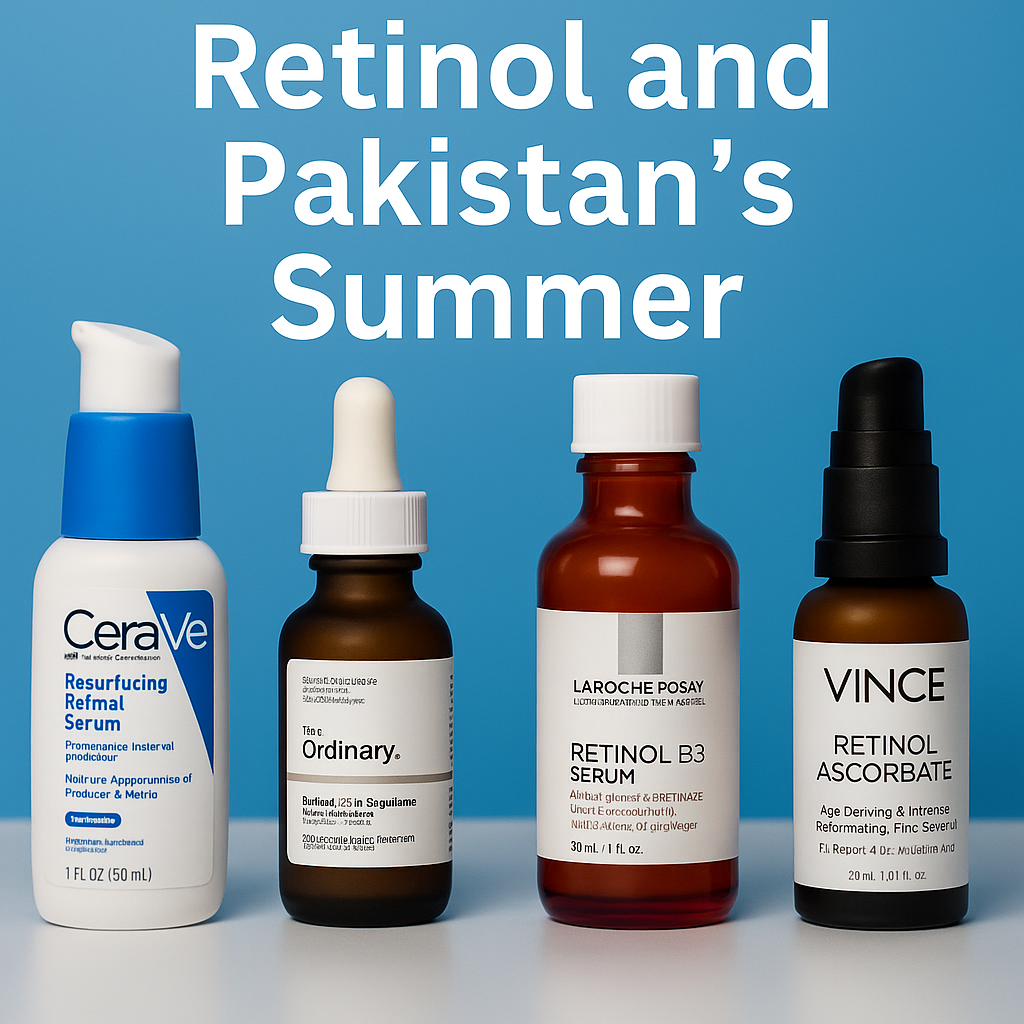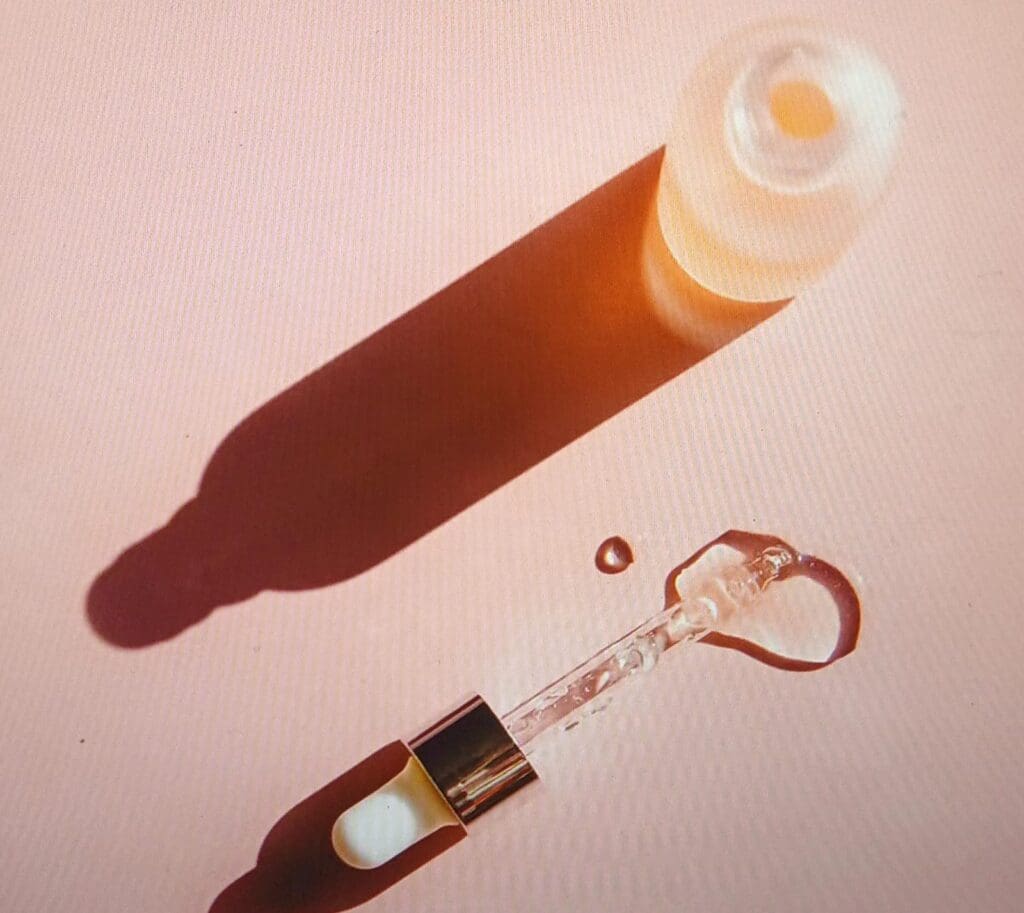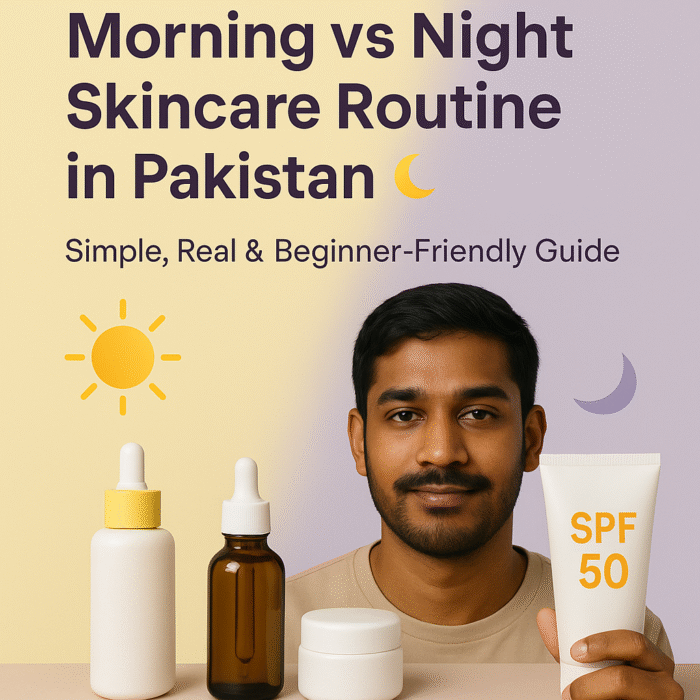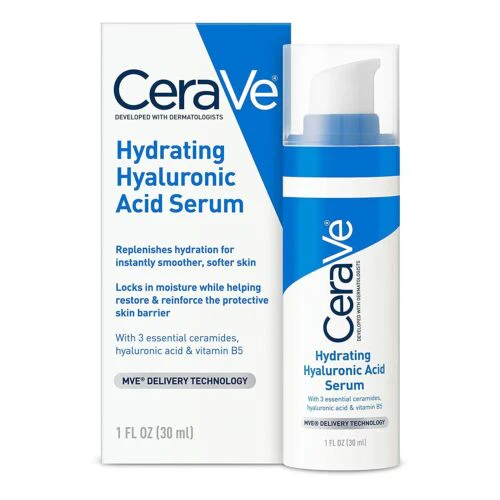
Can You Use Retinol in the Pakistani Summer? Find Out Here
Retinol is one of the most powerful skincare ingredients available today. It helps reduce acne, fade dark spots, smooth out fine lines, and improve overall skin texture.
But as summer approaches and temperatures rise across Pakistan, many people start to wonder: Is it safe to use retinol in the summer heat?
The short answer is yes — you can use retinol in summer — but it requires care, adjustment, and awareness of your environment. This guide will help you understand how to safely use retinol during hot months, especially in different parts of Pakistan, where climate and living conditions vary greatly.
Understanding Retinol and Sun Sensitivity
Retinol is a type of Vitamin A that increases skin cell turnover. This means it helps your skin shed dead cells faster and bring new, healthy ones to the surface. While this makes it a great anti-aging and acne-fighting ingredient, it also makes your skin more sensitive to sunlight.
That is why many people believe that retinol should be avoided during the summer. However, dermatologists agree that retinol does not become dangerous in summer — it simply needs to be used carefully, with proper sun protection and routine adjustments.
Climate Matters: Where You Live Makes a Difference
Pakistan has a wide range of climates. Whether you live in a cooler northern city or a hot and humid region, your skincare routine must adapt accordingly.
In cooler areas like:
- Murree
- Abbottabad
- Quetta
- Swat
The summer weather remains relatively mild. If you live in these areas, it is usually safe to continue using retinol as long as you wear sunscreen in the morning and moisturize well at night.
In hotter areas like:
- Lahore
- Multan
- Peshawar
- Karachi (hot and humid)
Using retinol becomes more challenging. High heat, sweat, and exposure to sun can make your skin more reactive. In these cities, you must pay closer attention to how your skin is feeling and adjust accordingly.
Your Living Conditions Also Matter
Apart from weather, your living environment also plays an important role in how well your skin tolerates retinol.
If you sleep in an air-conditioned room:
The cooler, drier environment helps prevent sweating and irritation. Retinol use is usually well-tolerated, and your skin gets a calm environment to absorb the ingredient overnight.
If you sleep with only a fan:
Sweating during the night can mix with retinol and cause itching, burning, or redness. In this case, you may need to reduce the frequency of use, or try a short-contact method — more on that below.
How Much Sun Exposure Do You Get During the Day?
This is another important factor that determines whether retinol is suitable for your summer routine.
If you spend most of your day:
- Indoors, in an office or at home
- With short trips outside (school run, errands, etc.)
Then retinol can safely remain in your routine. Just make sure to apply a broad-spectrum sunscreen with SPF 50 every morning, and reapply if needed.
If you spend hours:
- Outdoors in direct sun (sales jobs, delivery work, long travel)
Then your skin may already be inflamed or sun-stressed. Using retinol in this case can increase your risk of peeling, irritation, or uneven skin tone, especially if you forget to apply sunscreen or skip moisturizers.
What You Can Do to Make Retinol Work in Summer
You do not have to stop using retinol just because it is hot outside. Here are a few adjustments you can make to safely continue its use:
- Use It Only at Night
Retinol should never be used during the day, especially in summer. Apply it only at night, after cleansing and before moisturizing.
- Reduce Frequency
If your skin feels sensitive or irritated, cut back from every night to two or three nights per week.
- Moisturize Generously
Always follow retinol with a fragrance-free, hydrating moisturizer. This reduces dryness and strengthens your skin barrier.
- Try the One-Hour Wash-Off Technique
If your skin feels too sensitive to leave retinol on overnight, try this:
- Apply retinol to clean, dry skin
- Wait one hour
- Wash it off gently and follow with moisturizer
This technique allows your skin to get the benefits of retinol without the full exposure, making it a great option for hot, humid nights — especially if you do not have air conditioning.
- Do Not Skip Sunscreen
This is non-negotiable. Retinol increases sun sensitivity, so apply SPF 50 sunscreen every morning, even if you stay indoors. Reapply every 2 to 4 hours if you step outside.
Should You Stop Retinol in Summer?
You do not need to stop retinol completely — unless your skin is becoming too sensitive, red, or irritated despite all precautions.
If you notice:
- Burning
- Peeling
- Increased breakouts
- Uneven patches or stinging in sunlight
Then take a short break or reduce usage frequency. Focus on soothing ingredients like niacinamide, ceramides, and hyaluronic acid, and reintroduce retinol slowly after a week or two.
Final Advice from TheSkinPath.pk
Retinol remains one of the most effective skincare ingredients — even in summer. The key is not to panic or stop using it completely, but to adjust your routine based on your location, your living environment, and how your skin feels.
If you live in a cooler city, have air conditioning at night, or spend most of your time indoors, you can continue using retinol safely with the usual precautions.
If you live in a very hot area like Lahore or Multan, sleep without AC, and spend long hours outdoors, then you may need to reduce frequency or use techniques like short-contact application.
Every skin is different. Watch your skin closely, protect it from the sun, and focus on hydration. With the right approach, retinol can remain your year-round skincare ally — even through the Pakistani summer heat.
Also Read:
10 Best Retinol Serums in Pakistan
Top 8 Best Face Washes For Dry Skin In Pakistan

Education: University of Peshawar
Ahmad Khan holds a Master’s degree in Chemistry and has been writing about skincare for over five years. With a deep understanding of ingredients and their impact on the skin, he enjoys sharing practical, science-based skincare advice. When not writing, he loves playing with his kids.



